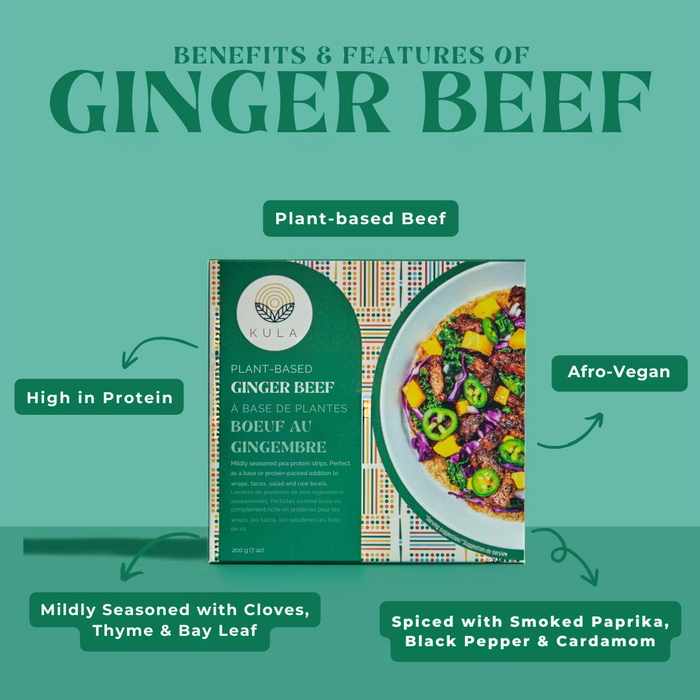Best Brands for Gluten Free BBQ Sauce in Portland
Best Brands for Gluten Free BBQ Sauce in Portland
Blog Article
All About Healthy Food: Benefits of Embracing Plant Based Options
The conversation bordering plant-based diet plans has acquired significant attention in recent times. Many people are discovering the prospective health and wellness benefits, dietary benefits, and environmental impacts connected with these nutritional selections. As people become more familiar with their food's impact on wellness and sustainability, questions emerge concerning the functionalities of adopting such a way of living. What particular changes can one expect, and how might these choices improve not only individual health and wellness but also the world's future?
Comprehending Plant-Based Diets
Numerous individuals connect plant-based diet regimens generally with vegetarianism or veganism, these diets can include a wide variety of eating patterns that prioritize entire, minimally processed plant foods. Such diet regimens typically consist of fruits, vegetables, entire grains, legumes, nuts, and seeds, while limiting or removing pet products. This adaptability allows individuals to customize their nutritional choices according to dietary demands and personal preferences. Some might take on a mainly plant-based diet plan while still periodically consuming meat or dairy, commonly described as a flexitarian approach. The focus stays on including more plant foods, which can cause a varied array of meals and tastes. Recognizing these various interpretations of plant-based eating is crucial for appreciating its ease of access and charm in modern food society.
Wellness Conveniences of Plant-Based Foods
The health benefits of plant-based foods are significant, providing a nutrient density advantage that sustains total health. Study indicates that these foods can improve heart health and play an important function in efficient weight administration. By integrating a lot more plant-based choices, individuals may improve their dietary choices and promote long-term health.
Nutrient Thickness Benefit
Nutrient thickness plays a necessary duty in the health and wellness advantages of plant-based foods, making them a compelling choice for those seeking a well balanced diet regimen. Plant-based foods, such as fruits, veggies, vegetables, nuts, and whole grains, are frequently rich in essential vitamins, minerals, and antioxidants while being reduced in calories. This high nutrient thickness allows individuals to eat less calories while still satisfying their nutritional demands. In addition, these foods are packed with dietary fiber, advertising digestive system wellness and aiding in weight monitoring. By including nutrient-dense plant-based choices, customers can enhance their total wellness, support their immune systems, and lower the danger of chronic conditions. Eventually, the nutrient density of plant-based foods emphasizes their value in a health-conscious lifestyle.
Heart Wellness Enhancement

Weight Management Assistance
In addition to advertising heart health and wellness, a plant-based diet can significantly aid in weight monitoring. This dietary strategy highlights entire foods such as fruits, vegetables, beans, nuts, and whole grains, which are usually lower in calories and higher in fiber compared to animal-based items. The high fiber content aids enhance satiation, decreasing total calorie intake. Plant-based diets are typically abundant in important nutrients while reduced in harmful fats, making it simpler to preserve a healthy and balanced weight. Research indicates that people that take on a plant-based lifestyle have a tendency to have reduced body mass indexes (BMIs) and experience even more effective weight loss compared to those who take in meat-heavy diet regimens. Consequently, embracing plant-based choices is a calculated selection for effective weight management
Nutritional Value of Plant-Based Components
Plant-based components are abundant in crucial nutrients, offering a varied array of vitamins, minerals, and antioxidants that add to overall health. A comparison of protein resources discloses that while pet products are frequently deemed remarkable, lots of plant-based alternatives supply appropriate healthy protein and various other helpful substances. Comprehending the nutritional value of these ingredients can aid people make educated nutritional options.
Important Nutrients in Plants
Nutrient-rich ingredients found in plants offer a varied variety of vital minerals and vitamins that contribute greatly to total wellness. These components are rich in vitamins A, C, and K, which sustain immune feature, vision, and blood clotting, specifically. On top of that, plants offer important minerals such as calcium, magnesium, and potassium, critical for heart health and wellness, muscle function, and bone toughness. The existence of fiber in plant-based foods aids food digestion and promotes a healthy and balanced gut microbiome. Anti-oxidants, found perfectly in fruits and veggies, aid combat oxidative stress and anxiety and minimize inflammation. Numerous plant foods are reduced in calories yet high in nutrients, making them an outstanding selection for those seeking to preserve a healthy and balanced weight while guaranteeing suitable nutrient intake.

Contrasting Protein Sources
Healthy protein resources differ significantly in their nutritional profiles, with plant-based ingredients offering one-of-a-kind benefits. Unlike animal proteins, which frequently include saturated fats and cholesterol, plant healthy proteins have a tendency to be lower in these unhealthy parts. Legumes, nuts, seeds, and entire grains are rich in important amino acids, fiber, vitamins, and minerals. Lentils provide high healthy protein material alongside considerable iron and folate, while quinoa is a complete healthy protein, providing all nine necessary amino acids. Furthermore, plant-based healthy proteins are commonly accompanied by anti-oxidants and phytochemicals that support general wellness. The change to plant-based protein sources not only boosts nutritional consumption but additionally lines up with lasting dietary techniques, decreasing ecological impact and advertising long-term wellness benefits.
Ecological Impact of Plant-Based Eating
As recognition of climate adjustment grows, lots of people are exploring lasting nutritional choices that can substantially reduce their ecological impact. Plant-based eating has become a significant contributor to lowering greenhouse gas emissions, which are mostly related to livestock production. The farming of fruits, vegetables, veggies, and grains usually calls for less resources, such as water and land, compared to animal farming. Furthermore, plant-based diet plans can bring about lowered deforestation, as less land is needed for grazing livestock or growing animal feed. By moving towards plant-based choices, consumers can support biodiversity and advertise much healthier ecological communities. Overall, embracing plant-based eating not only benefits Read More Here personal health however likewise represents a crucial action towards ecological sustainability and preservation initiatives.
Conquering Common Misconceptions
While numerous people acknowledge the benefits of a plant-based diet regimen, several mistaken beliefs often deter them from fully welcoming this way of living. An usual idea is that plant-based diet plans lack adequate protein; however, numerous plant resources, such as beans, nuts, and tofu, supply sufficient protein. Additionally, some think that this diet regimen is costly, when in truth, staples like beans, rice, and seasonal vegetables can be quite inexpensive. Another misunderstanding is that plant-based eating is extremely limiting, whereas it really offers a diverse range of foods and flavors. Lastly, numerous worry that a plant-based diet regimen may lead to shortages, yet with appropriate planning, people can obtain all essential nutrients, consisting of minerals and vitamins, while enjoying a vast range of delicious dishes.
Tips for Transitioning to a Plant-Based Way of living
Making the shift to a plant-based way of living can be an improving experience, though it often calls for some guidance to browse the first modifications. First, people are urged to begin progressively, integrating more fruits, vegetables, legumes, and whole grains into their dishes while lowering meat and milk consumption. Dish preparation is vital; preparing an once a week menu can assist reduce the change and avoid final undesirable selections. Exploring new recipes and cooking techniques can additionally enhance the experience and maintain exhilaration concerning plant-based eating. Additionally, signing up with assistance teams or areas can give motivation and share important suggestions. Finally, staying informed regarding nutrition assurances balanced meals, avoiding deficiencies while fostering a healthy, rewarding plant-based lifestyle.
Delicious Plant-Based Meal Concepts
Exploring delicious plant-based dish ideas can motivate individuals to accept a much more nutritious diet plan. One prominent alternative is a hearty quinoa salad, including cherry tomatoes, cucumber, and a spicy lemon-tahini clothing. Another favorite is a mouthwatering lentil stew, loaded with carrots, celery, and great smelling herbs, ideal for a soothing supper. For morning meal, over night oats made with almond milk, chia seeds, and covered with fresh berries provide a healthy begin to the day. In addition, a lively veggie stir-fry with tofu and a variety of colorful veggies can be a quick yet satisfying dish. Velvety avocado toast on whole-grain bread, sprinkled with seeds and seasonings, offers an easy yet tasty snack. These dishes display the selection and splendor of plant-based consuming.

Frequently Asked Inquiries
Can a Plant-Based Diet Offer Sufficient Protein?
The inquiry of whether a plant-based diet regimen can offer sufficient healthy protein prevails. Numerous sources, consisting of beans, nuts, seeds, and whole grains, can fulfill healthy protein needs properly, sustaining a healthy and balanced diet for people.
Are Plant-Based Diets Appropriate for Children?
The viability of plant-based diet plans for children depends upon careful preparation. Ample nutrients should be assured, including minerals, vitamins, and proteins. With appropriate guidance, such diets can sustain healthy and balanced development and growth in youngsters.
Just how Do I Eat Out on a Plant-Based Diet plan?
Eating in restaurants on a plant-based diet includes seeking dining establishments with diverse food selections, requesting for modifications, and checking out vegan-friendly choices. Preparation ahead look at these guys and interacting nutritional choices can enhance the eating experience while keeping dietary options.
What Are Usual Irritants in Plant-Based Foods?
Typical irritants in plant-based foods include soy, gluten, nuts, and seeds - Plant Based Chicken. People adhering to a plant-based diet regimen must recognize these irritants and read labels very carefully to avoid unfavorable responses and ensure secure intake
Can Plant-Based Diets Assist With Weight Loss?
Study shows that taking on a plant-based diet may facilitate weight-loss because of its normally reduced calorie thickness and greater fiber content. This mix can boost satiation, aiding people handle their caloric intake efficiently. Numerous people associate plant-based diets mainly with vegetarianism or veganism, these diet regimens can incorporate a vast array of consuming patterns that prioritize whole, minimally refined plant foods. Nutrient thickness plays a crucial duty in the wellness benefits of plant-based foods, making them a compelling selection for those looking for a balanced diet. Plant-based diets have actually been revealed to noticeably enhance heart health and wellness, this contact form as they frequently contain components that sustain cardiovascular feature. In enhancement to promoting heart wellness, a plant-based diet regimen can significantly aid in weight monitoring. A typical belief is that plant-based diet regimens lack sufficient healthy protein; nevertheless, numerous plant resources, such as legumes, nuts, and tofu, give adequate protein.
Report this page